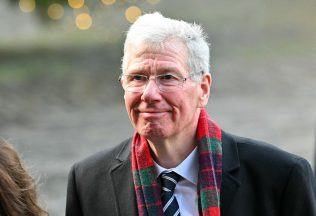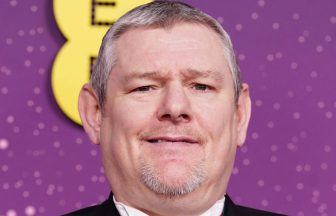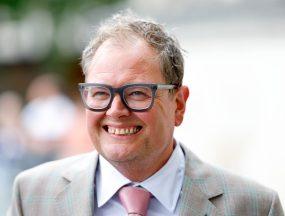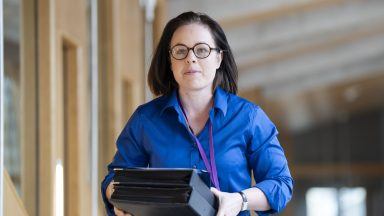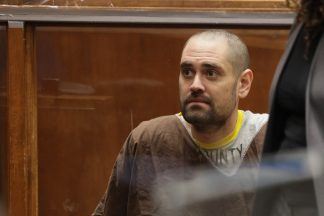The Holyrood inquiry into the Scottish Government’s handling of complaints against Alex Salmond is about to get under way.
Scotland’s top civil servant Leslie Evans is due to give evidence before a cross-party committee of MSPs in the inquiry’s opening session on Tuesday.
The complaints, while not directly related, ultimately triggered Police Scotland’s separate investigation into Salmond, leading to a criminal trial.
The former first minister was cleared of 13 charges of sexual offences by a jury in the High Court in March.
What is the inquiry?
A special Holyrood committee – formally known as the committee on Scottish Government handling of harassment complaints – was set up in 2019 to examine how claims against Alex Salmond were dealt with.
It is made up of nine MSPs – four SNP, two Conservatives and one from Labour, the Greens and the Lib Dems.
It is headed up by deputy presiding officer Linda Fabiani.
How did we get here?
At the crux of why an inquiry was set up more than 18 months ago was the Scottish Government’s botched handling of the initial complaints made against Salmond.
Claims of sexual misconduct against him, made by two women in 2018 but which dated back to 2013, came shortly after the Scottish Government reformed its complaints procedures in the wake of the Me Too movement.
Salmond slammed the process as illegal, branding it “unfair and unjust” as he took the government he used to lead to court.
It emerged that the investigating officer appointed to handle the complaints internally had previously had contact with both complainers.
Scottish Government officials defended this contact as amounting to “welfare support and guidance”, but it was in breach of their own rules and fatal for their case.
They conceded defeat before the judicial review even got to its main hearings.
Presiding in the case at the Court of Session, Lord Pentland said the actions of government officials had been unlawful and “tainted with apparent bias”.
The end-result was humiliating damages of more than £512,000 paid to Salmond by the Scottish Government.
Salmond’s supporters believe the botched case – and the swift progress of the police investigation against him afterwards – are evidence of a conspiracy against him.
What can the inquiry do?
In its own words, the committee’s remit is “to consider and report on the actions of the First Minister, Scottish Government officials and special advisers in dealing with complaints about Alex Salmond”.
It has already sought – with varying degrees of success – tranches of documentation related to the case, such as correspondence between key players at the time, SNP and government records and written evidence.
The MSPs will look at how the new complaints procedure was drawn up – and crucially, what went wrong with its implementation with regards to the complaints against the former FM.
It will also want to know more about the build-up to and fall-out from the January 2019 judicial review.
The inquiry has further said it will seek to examine the “culture” of the Scottish Government under both Nicola Sturgeon’s leadership and her predecessor’s.
Most intriguingly, witnesses at the inquiry will have to give evidence under oath.
Those witnesses include permanent secretary Leslie Evans, first up on Tuesday, who faced repeated calls to be axed from Salmond and his allies in the wake of the Court of Session fiasco.
Salmond himself – who has taken a vow of silence since the end of his High Court trial, citing the coronavirus pandemic – is expected to speak.
His lawyer, Gordon Jackson QC, said in closing in March that the High Court case against his client “stinks” and had come from “the political bubble”.
Speaking on the court steps after the jury’s verdict exonerated him, Salmond vowed that evidence that could not be heard in court would eventually “see the light of day”.
And his successor, Nicola Sturgeon, will also give evidence to the inquiry.
So will her husband and SNP chief executive Peter Murrell, her deputy first minister John Swinney, and a swathe of civil servants and past and present political advisers.
Sturgeon has long committed to giving a full accounting of events to the inquiry.
She has been dogged throughout the saga by questions of what she knew and when, while she has also rubbished any notion of a conspiracy.
Speaking in January 2019, she said: “As First Minister I don’t consider it optional to me whether or not I appear before parliamentary committees, that is a part of my job and a part of my responsibility.”
She also already referred herself to independent advisers who will consider if she breached the ministerial code during meetings and phone calls with Salmond in 2018.
Sturgeon has always maintained she first learned of the investigation into Salmond’s conduct when he told her about it at a meeting in her Glasgow home on April 2, 2018.
But at the criminal trial, Salmond’s former chief of staff Geoff Aberdein said on the witness stand he had met the First Minister at her Scottish Parliament office on March 29.
The FM insists her only role in the complaints process was signing it off the year before – and that she has always “acted appropriately and in good faith”.
What can’t the inquiry do?
The inquiry is not an opportunity to re-litigate the case against Salmond that was dismissed by a High Court jury.
For one thing, the claims made to Scottish Government officials in 2018 and those made to Police Scotland are different and not directly related.
For another thing, that’s not what the inquiry is for. Its remit is precise and focused on the actions of the Scottish Government.
In due course, it will produce a report based on everything it discovers in the coming weeks and months.
It will aim to hold the key players to account and weed out any mistakes or misconduct that might have occurred during the period.
It will likely make recommendations and advise on lessons learned, and give a view on the robustness of the government’s complaints policies.
If there is evidence one way or the other, it may be able to come to a view on whether claims of a politically-motivated conspiracy against Salmond have merit or not.
But the inquiry cannot itself prosecute or sanction anyone.
It could, in the quest for cooperation from ministers and officials, attempt to use the courts to enforce its will, as is being discussed in the current battle to get a resistant Scottish Government to turn over documents containing legal advice from the time, which officials say is privileged.
The committee has asked for three lots of evidence from the government – the first on how the complaints policy used against Salmond was developed; the second on the judicial review; and the third on the investigation of the complaints themselves.
It has been angered by withheld and redacted documents as well as a failure by officials to meet a July deadline to turn over the final tranche of evidence requested.
List of prospective witnesses
- Current and former permanent secretaries
- Staff trade unions
- The First Minister
- The deputy first minister
- Alex Salmond
- Former chief of staff to Alex Salmond, Geoff Aberdein
- The First Minister’s chief of staff
- A number of senior civil servants
- Lord Advocate James Wolffe
- Chief Executive of the SNP, Peter Murrell
Follow STV News on WhatsApp
Scan the QR code on your mobile device for all the latest news from around the country







